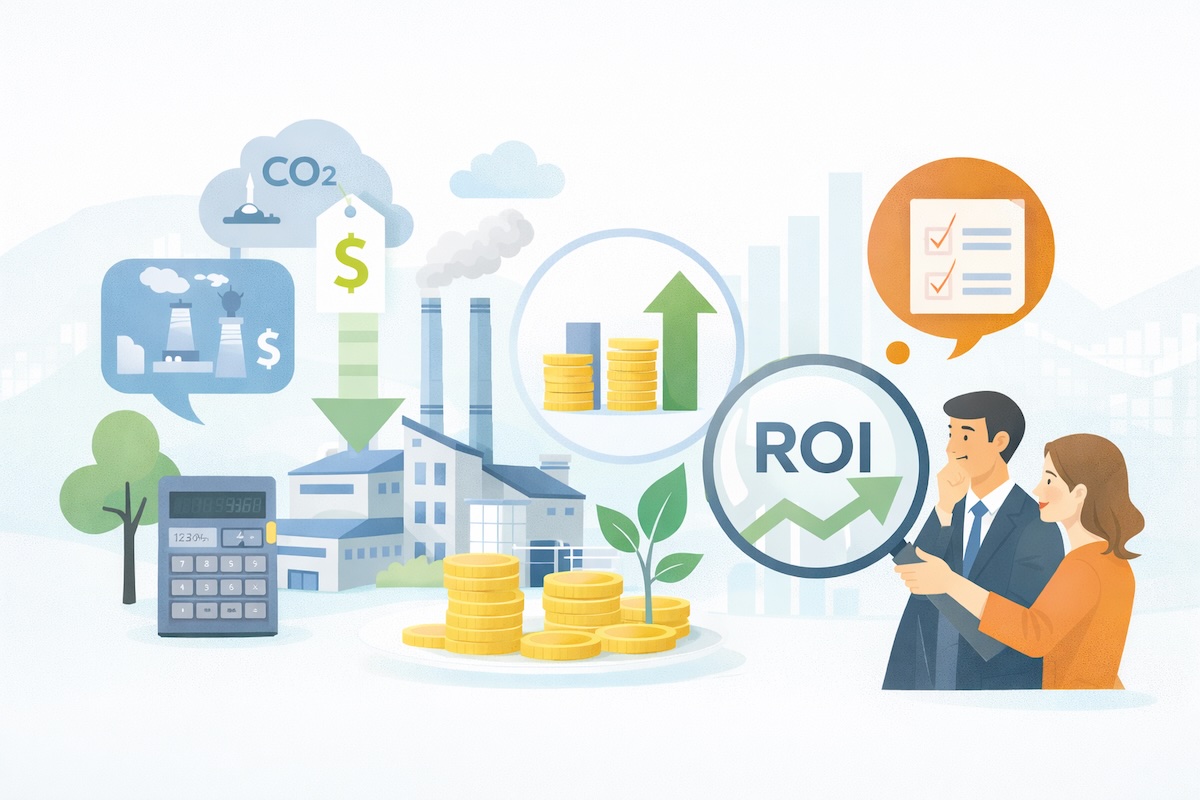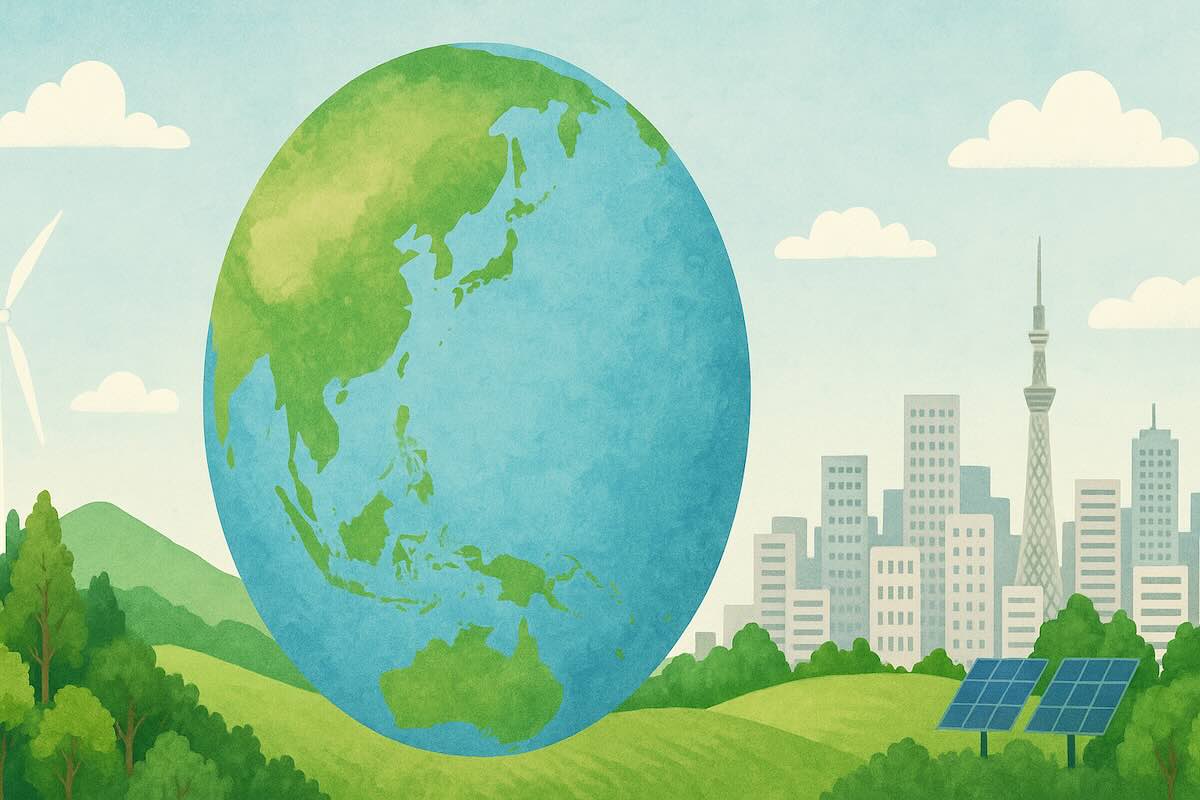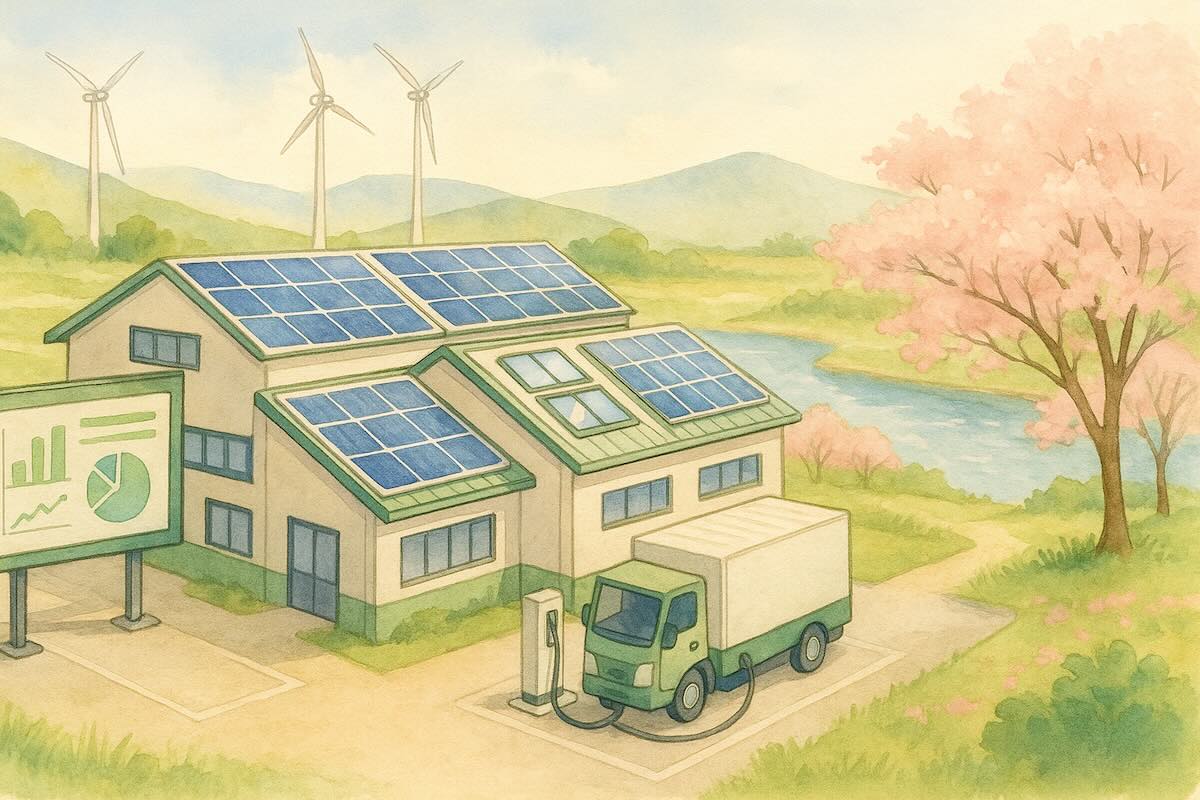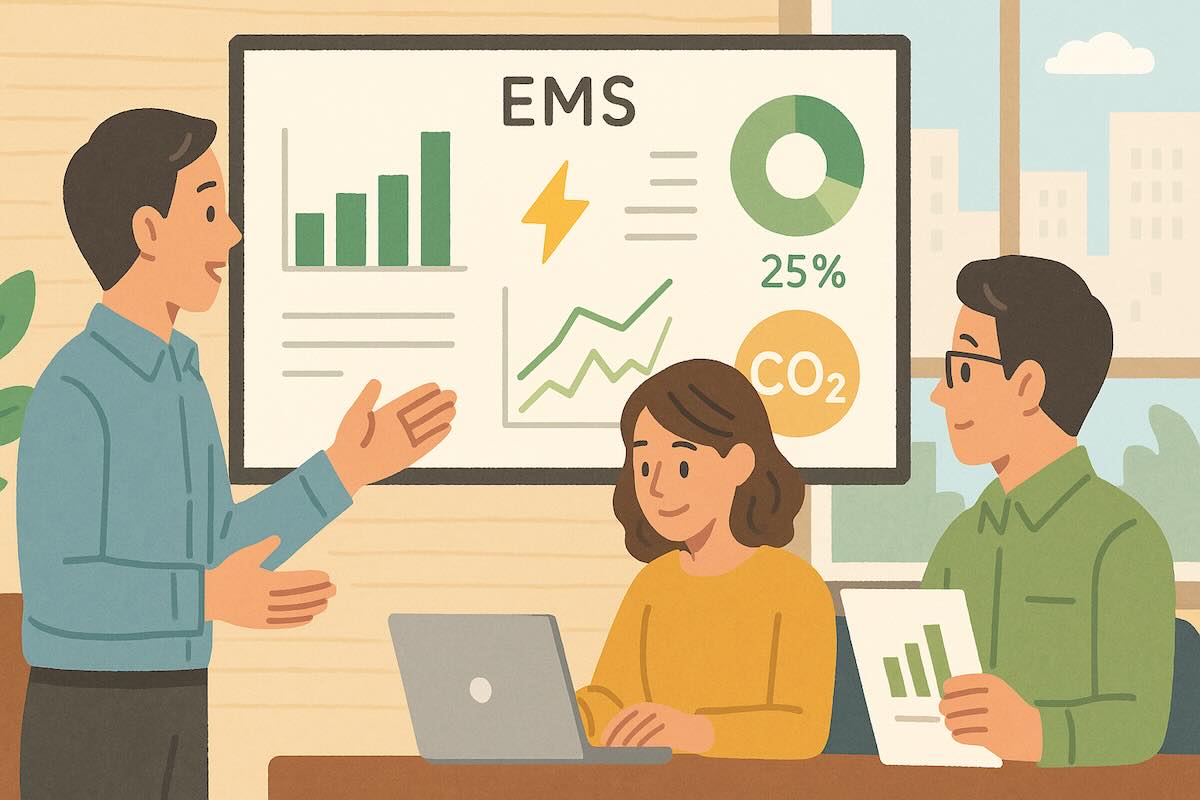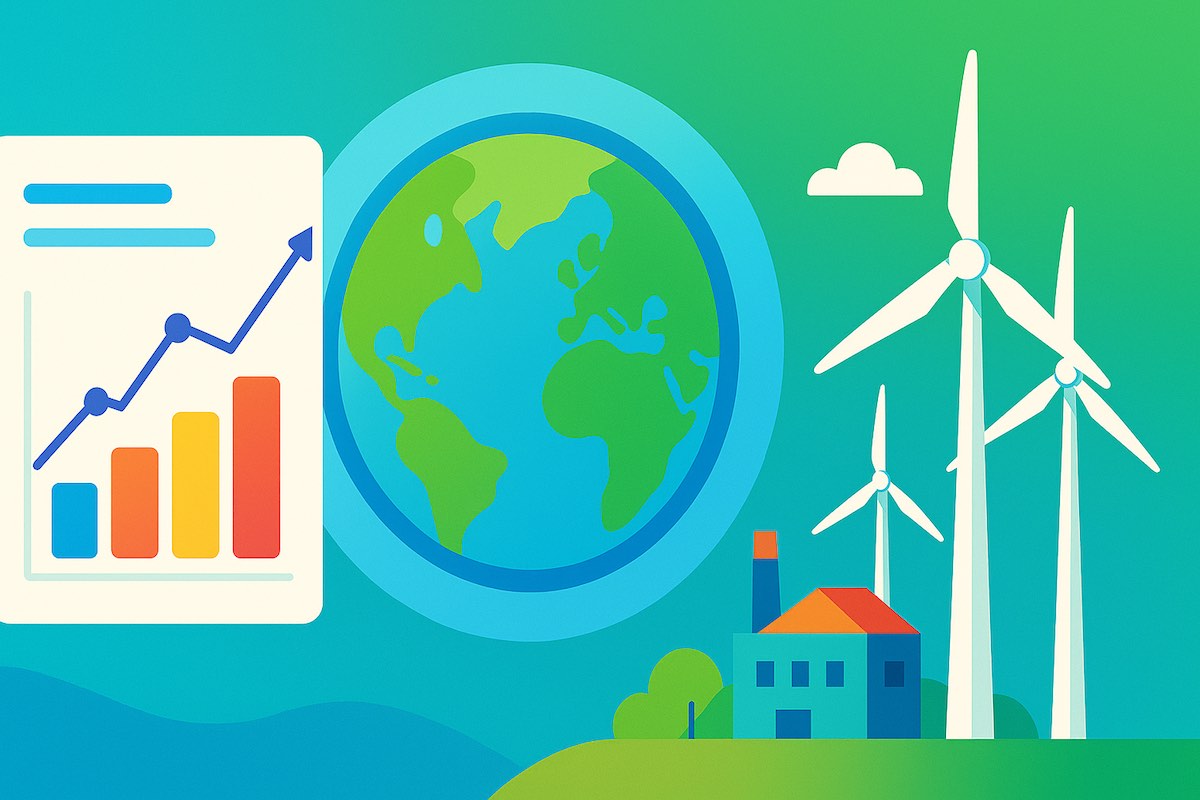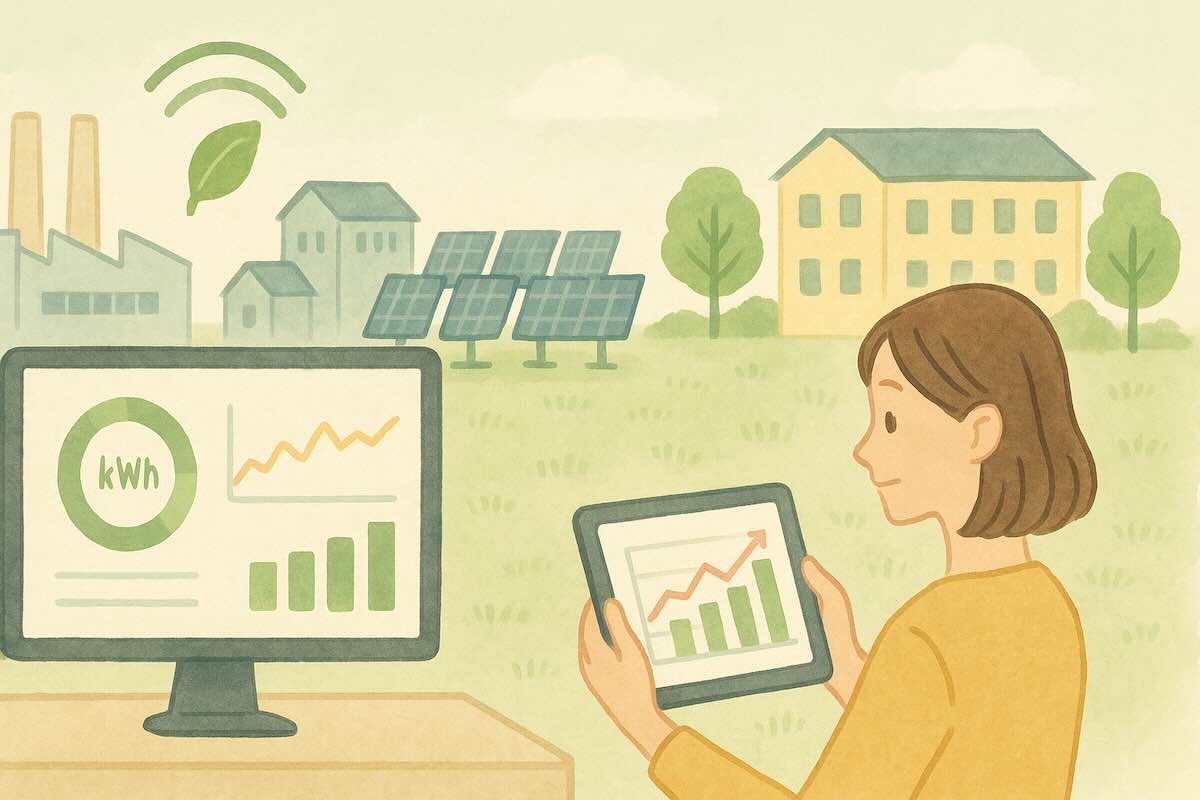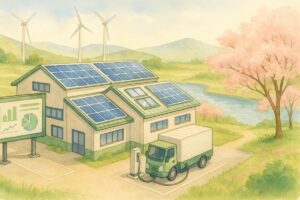Japan’s Path Toward Decarbonization
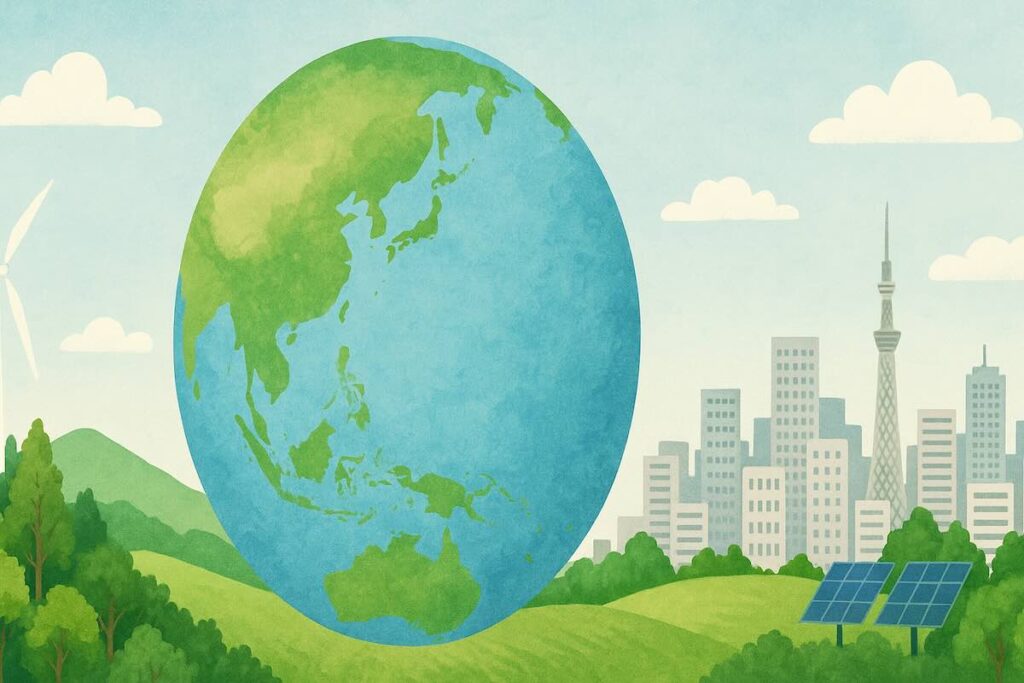
In recent years, you may have heard the words “decarbonization” and “carbon neutral” more and more often. They appear in the news, in company reports, and in global climate discussions.
But what exactly do they mean? Let’s take a friendly, easy-to-understand look at how Japan is working toward a decarbonized future.
🌱 What Does “Decarbonization” Mean?
In simple terms, decarbonization means creating a society that emits little to no carbon dioxide (CO₂).
Since CO₂ and other greenhouse gases are the main causes of global warming, reducing them is key to slowing down climate change.
Japan has set an ambitious national goal: achieving net-zero greenhouse gas emissions by 2050.
This is known as Japan’s Carbon Neutral Declaration, and it represents a major commitment to a sustainable global future.
🔋 How Is Japan Working Toward Decarbonization?
Here are some of the main initiatives currently underway in Japan:
1️⃣ Expanding Renewable Energy
Solar, wind, hydro, and geothermal power are being introduced nationwide.
You’ll often see solar panels on rooftops — even in residential areas. Many factories and offices are also shifting to renewable energy sources to reduce their carbon footprint.
2️⃣ Promoting Electric and Hybrid Vehicles
Transportation plays a major role in emissions.
By transitioning from gasoline cars to electric vehicles (EVs), Japan aims to significantly reduce CO₂ emissions from daily travel.
Major automakers are actively investing in electrification and charging infrastructure.
3️⃣ Carbon Offsetting
When it’s impossible to eliminate CO₂ entirely, offsetting programs help compensate by supporting forest preservation or tree planting elsewhere.
Japanese companies often invest in these projects to achieve “net-zero” emissions on balance.
4️⃣ Smart Cities and Smart Factories
Technology plays a vital role in Japan’s decarbonization journey.
By using IoT and AI, cities and factories can visualize their energy use in real time and eliminate waste.
This “smart” approach helps optimize electricity consumption and improve efficiency across industries.
For example, Orange Box provides solutions that use IoT and AI to visualize operational data from industrial equipment, helping companies reduce unnecessary energy use.
Their services support energy efficiency and carbon-neutral operations in manufacturing — a key step toward a sustainable industrial future.
👉 Orange Box: Smart Factory Solution
☕ What Individuals Can Do
You might think decarbonization is only for governments or large corporations — but individuals also play a vital role.
Simple everyday actions can make a real difference, such as:
In Japan, households account for about 15% of national CO₂ emissions, so personal awareness truly matters.
Each small step adds up to a much bigger impact.
💬 Decarbonization as an Opportunity
While the term “decarbonization” can sound restrictive, it’s actually full of opportunities.
New technologies, industries, and careers are emerging — from battery recycling to renewable energy systems and energy-saving innovations.
For engineers and developers, this shift is especially exciting.
It opens up chances to learn new skills, design innovative solutions, and contribute directly to a greener future.
🌏 A Collective Effort Toward a Sustainable Future
Japan’s path toward decarbonization isn’t just a government or corporate initiative — it’s a nationwide project for the future.
By making small, conscious choices and supporting sustainable innovation, we can all help build a cleaner, more resilient world for the next generation.
Let’s take that first step — together.

